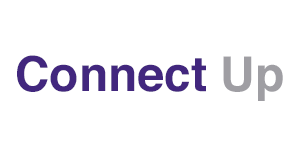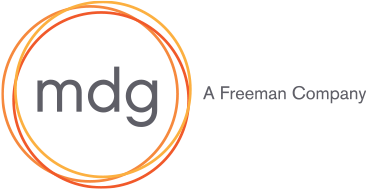
Admittedly, we’re a little biased about the benefits of using an agency for attendee marketing, so we encourage you to filter the following advice through the lens of your unique situation. To decide if professional marketing help makes sense for you, consider the times when you’ve sought guidance from an external source, e.g., a trusted mentor to review a resume, a therapist to work through a personal issue, a trainer to achieve a fitness goal. Did you find value in the relationship? And did having a new perspective or additional support get you over a roadblock and/or closer to your goals? If so, could the same principle be applied to your attendee acquisition efforts? The following are the primary benefits of working with an agency:
Fresh perspective.
If you’ve been working on the same event, with the same team, using the same basic set of tools, it’s possible that your approach is getting stale or isn’t evolving fast enough to keep pace with changing audience preferences. An agency brings innovative thinking, often based on what’s working (and not working) with similar events in a broader client portfolio.
Access to technology.
Sophisticated marketing tools like email automation, social listening or consumer intelligence platforms aren’t always affordable or realistic for individual organizations. Because agencies apportion their martech stack fees across several clients, they can cost-effectively create access to tools that may have otherwise felt out-of-reach.
Access to specialty skills.
Need a database expert for a one-time project? Someone to help you maximize the investment you just made in a marketing automation tool? A graphic designer or copywriter who can develop killer creative to hand over to your internal team? When a full-time person doesn’t make sense, an agency might. In addition to paying for only what you need, you’re likely getting access to highly skilled specialists with depth and breadth of expertise.
Flexibility.
Maybe it’s not the specialty skills you need as much as pure bandwidth. Whether your star marketer resigns three months before show time, you’re launching a new event or you need help in the crux of the event cycle, agencies can provide the resources you need without a long-term commitment. Ideally, the people they place will have the skills and knowledge to hit the ground running.
Objectivity.
Sometimes, being too closely invested in your event makes it difficult to spot gaps or places for improvement. Agencies tend to bypass emotion and politics by evaluating performance based on metrics and objective expertise. This can be especially useful in situations when decisions are made based on an opinionated board member or because “we’ve always done it this way.” An agency’s impartiality can filter out noise and streamline marketing efficiency.
Trend knowledge.
Keeping up with shifting trends can be exhausting. And while your team may not have time to dig into things like influencer marketing, social media stories or interactive content, agencies are immersed in all of it. Lean on them to navigate the latest practices and determine what content works for your audience and where you’ll get the most mileage out of it.
Of course, an agency isn’t the only solution to the challenges outlined above. Attending events (like Lippman Connects’ Attendee Acquisition Roundtable!) that emphasize peer-to-peer sharing, re-skilling existing team members and engaging freelancers, independent contractors, professional mentors, peer groups and online forums should all be considered as well. If you do go the agency route, ensure you find one that’s truly invested in being a partner in your success, not just a vendor. While asking for help with something you’re passionate about and close to can be difficult, it can also be incredibly rewarding.

